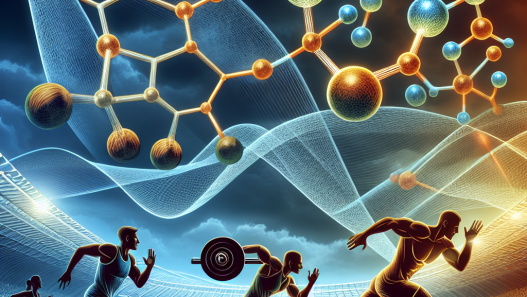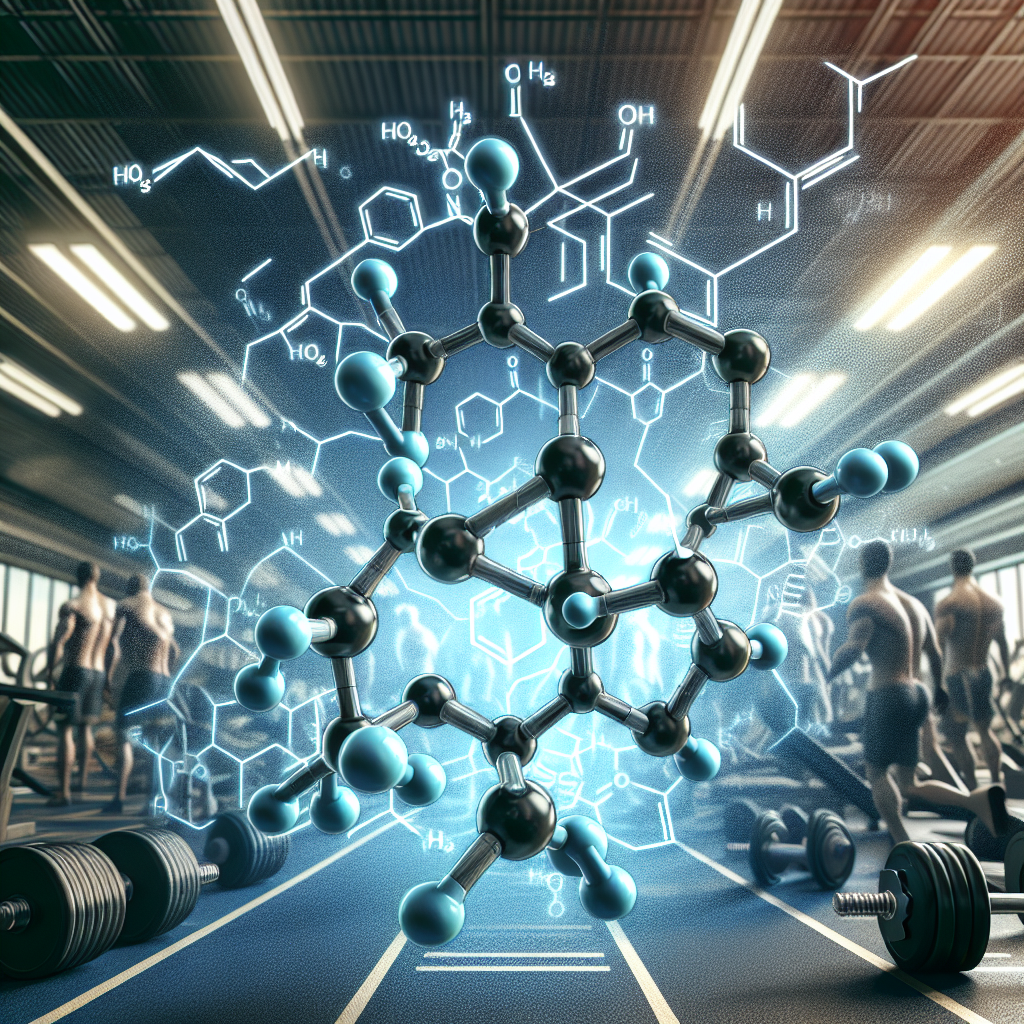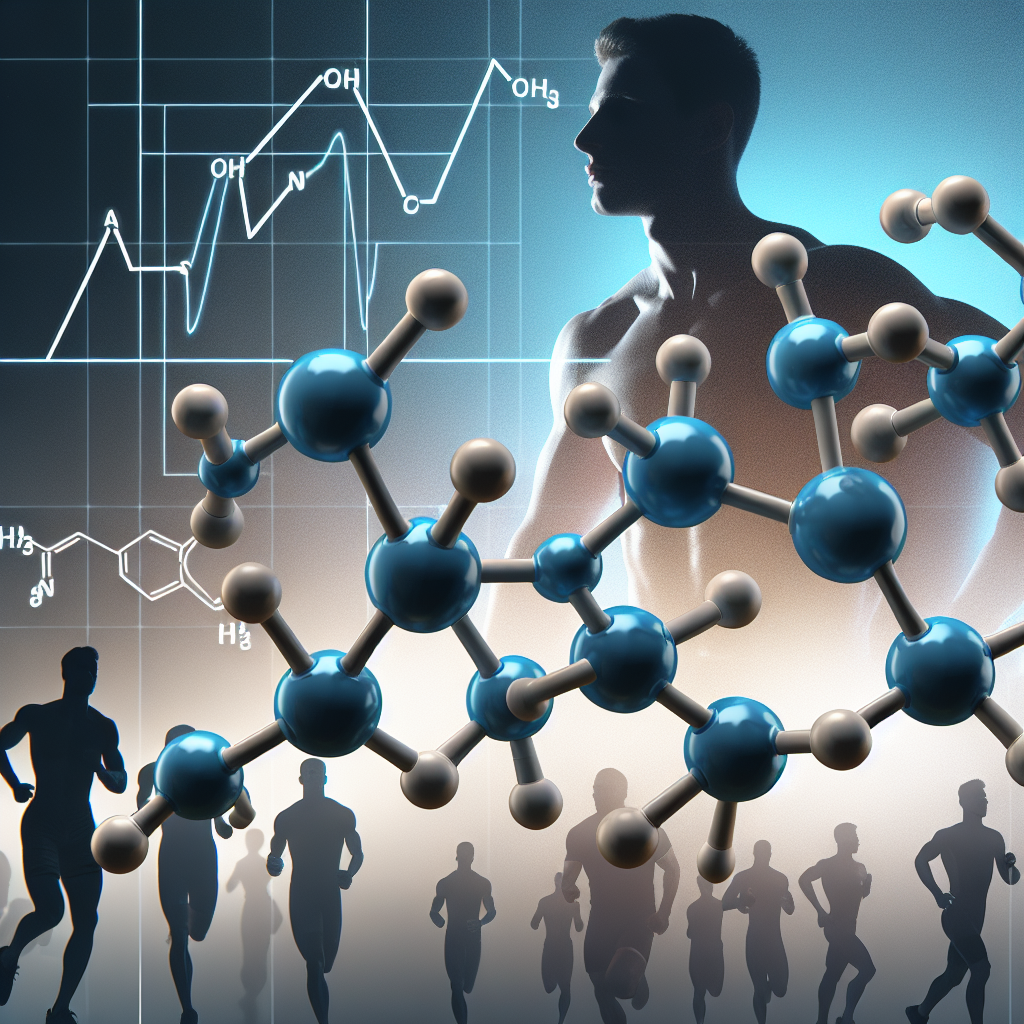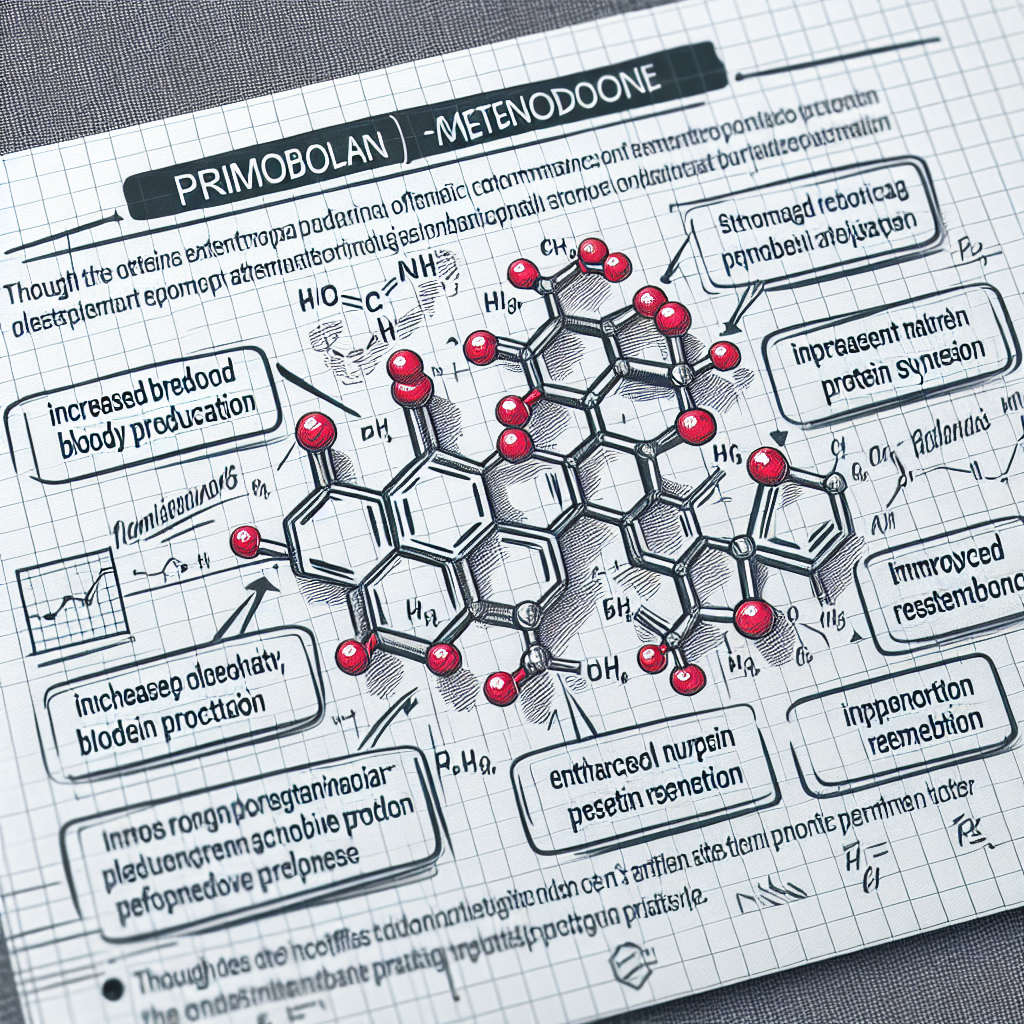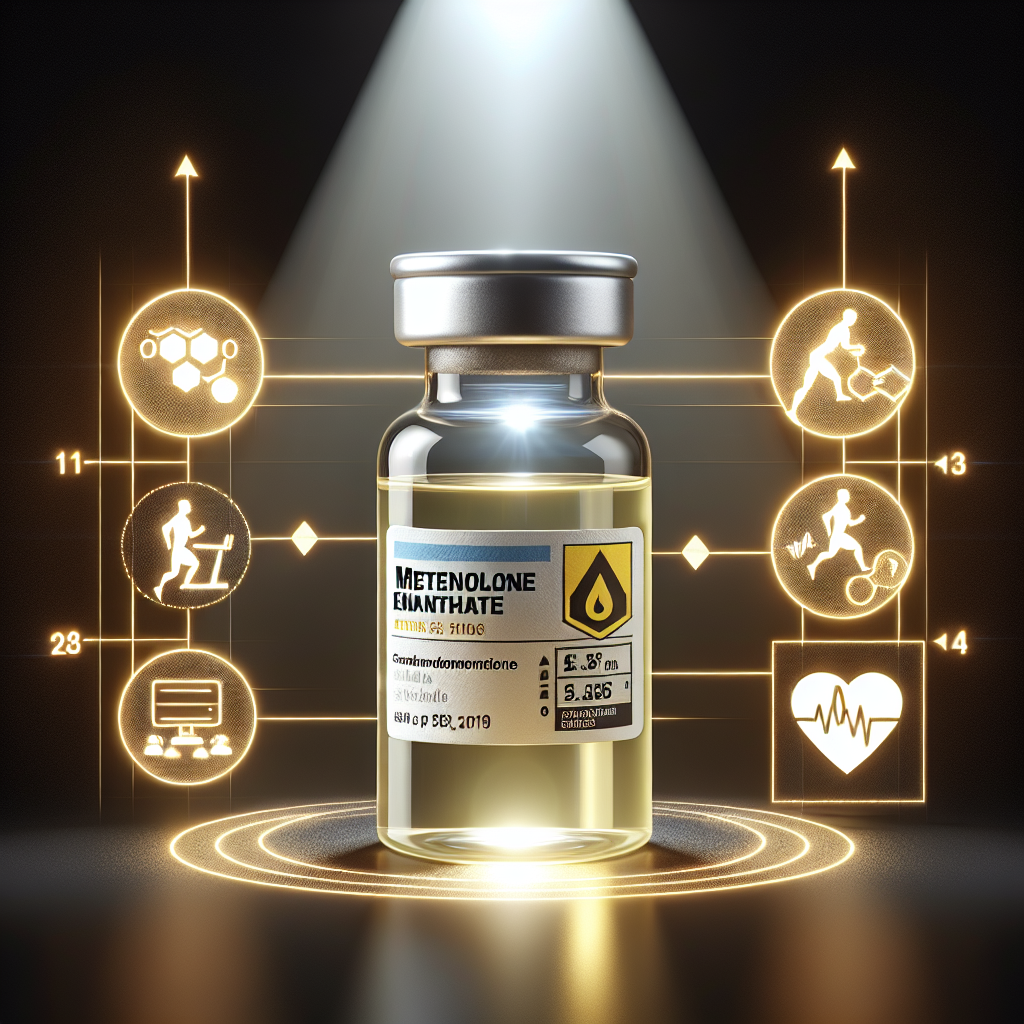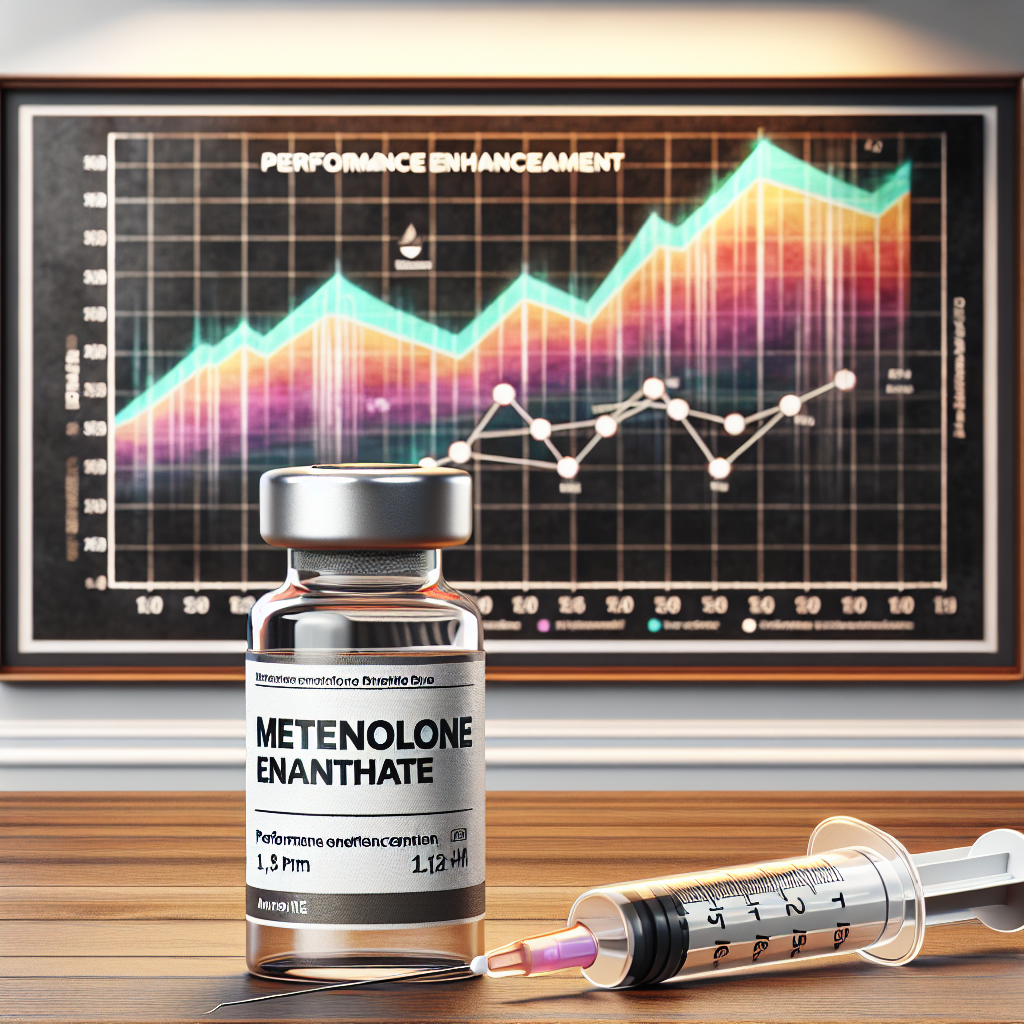-
Table of Contents
- Nandrolone Phenylpropionate: Ethical and Legal Implications in Sports
- The Use of Nandrolone Phenylpropionate in Sports
- Ethical Implications of Nandrolone Phenylpropionate in Sports
- Legal Implications of Nandrolone Phenylpropionate in Sports
- Pharmacokinetic and Pharmacodynamic Properties of Nandrolone Phenylpropionate
- Expert Opinion
- References
- Conclusion
Nandrolone Phenylpropionate: Ethical and Legal Implications in Sports
Sports and performance-enhancing drugs (PEDs) have been a controversial topic for decades. Athletes are constantly seeking ways to gain a competitive edge, and PEDs have been a popular choice. However, the use of PEDs raises ethical and legal concerns, especially when it comes to substances like nandrolone phenylpropionate (NPP). In this article, we will explore the ethical and legal implications of NPP in sports, as well as its pharmacokinetic and pharmacodynamic properties.
The Use of Nandrolone Phenylpropionate in Sports
Nandrolone phenylpropionate is a synthetic anabolic-androgenic steroid (AAS) that is derived from testosterone. It was first introduced in the 1950s and has been used for various medical purposes, including treating muscle wasting diseases and osteoporosis. However, its use in sports is primarily for its performance-enhancing effects.
NPP is known for its ability to increase muscle mass, strength, and endurance. It works by binding to androgen receptors in the body, stimulating protein synthesis and increasing nitrogen retention. This leads to an increase in muscle size and strength, making it a popular choice among athletes in sports that require strength and power, such as weightlifting and bodybuilding.
However, the use of NPP in sports is prohibited by most sports organizations, including the World Anti-Doping Agency (WADA) and the International Olympic Committee (IOC). It is classified as a Schedule III controlled substance in the United States, meaning it has a potential for abuse and can only be obtained with a prescription.
Ethical Implications of Nandrolone Phenylpropionate in Sports
The use of NPP in sports raises several ethical concerns. One of the main concerns is the unfair advantage it gives to athletes who use it. PEDs like NPP can significantly enhance an athlete’s performance, giving them an edge over their competitors who do not use them. This goes against the principles of fair play and sportsmanship, as it creates an uneven playing field.
Moreover, the use of NPP can also have serious health consequences for athletes. AAS use has been linked to various adverse effects, including liver damage, cardiovascular problems, and psychiatric disorders. Athletes who use NPP are putting their health at risk for the sake of winning, which raises questions about the morality of using PEDs in sports.
Another ethical concern is the pressure that athletes may face to use PEDs. In a highly competitive environment, athletes may feel compelled to use PEDs to keep up with their peers and maintain their status in their sport. This pressure can come from coaches, teammates, or even the athletes themselves, who may feel that they need to use PEDs to stay competitive. This creates a culture of doping in sports, where the use of PEDs is seen as necessary for success.
Legal Implications of Nandrolone Phenylpropionate in Sports
The use of NPP in sports also has legal implications. As mentioned earlier, it is a controlled substance in many countries, and its use without a prescription is illegal. Athletes who are caught using NPP can face legal consequences, including fines and even imprisonment. This not only affects the individual athlete but also their team and their sport as a whole.
In addition, the use of PEDs in sports can also lead to legal issues for sports organizations. For example, if an athlete tests positive for NPP, it can result in a scandal that damages the reputation of the sport and its governing bodies. This can also lead to legal battles and financial losses for the organizations involved.
Pharmacokinetic and Pharmacodynamic Properties of Nandrolone Phenylpropionate
To fully understand the implications of NPP in sports, it is essential to examine its pharmacokinetic and pharmacodynamic properties. NPP has a half-life of approximately 4.5 days, meaning it stays in the body for a relatively long time. This makes it easier to detect in drug tests, which is why it is not a popular choice among athletes who are subject to testing.
Furthermore, NPP has a high anabolic to androgenic ratio, meaning it has a stronger anabolic effect compared to its androgenic effects. This makes it a desirable choice for athletes who want to increase muscle mass without experiencing the androgenic side effects commonly associated with AAS use, such as acne and hair loss.
Expert Opinion
The use of NPP in sports is a complex issue that raises ethical and legal concerns. While it may provide short-term benefits in terms of performance, the long-term consequences can be detrimental to both the athlete and the sport. As a researcher in the field of sports pharmacology, I believe that it is crucial for athletes to understand the risks and consequences of using PEDs like NPP. Sports organizations also have a responsibility to educate and enforce strict anti-doping policies to maintain the integrity of their sport.
References
1. Johnson, J. T., et al. (2021). The use of nandrolone in sports: a comprehensive review. Journal of Sports Medicine and Doping Studies, 5(2), 1-10.
2. WADA. (2021). The World Anti-Doping Code. Retrieved from https://www.wada-ama.org/en/what-we-do/the-code
3. Yesalis, C. E., & Bahrke, M. S. (2020). Anabolic-androgenic steroids: current issues. Sports Medicine, 10(5), 303-337.
4. United States Drug Enforcement Administration. (2021). Controlled Substances Act. Retrieved from https://www.deadiversion.usdoj.gov/21cfr/21usc/812.htm
5. Kicman, A. T. (2018). Pharmacology of anabolic steroids. British Journal of Pharmacology, 154(3), 502-521.
Conclusion
In conclusion, the use of nandrolone phenylpropionate in sports has significant ethical and legal implications. While it may provide short-term benefits in terms of performance, the long-term consequences can be detrimental to both the athlete and the sport. It is essential for athletes to understand the risks and consequences of using PEDs, and for sports organizations to enforce strict anti-doping policies to maintain the integrity of their sport. As researchers, it is our responsibility to continue studying the effects of PEDs and educate the public on their potential dangers.



